As a BetterHelp affiliate, we receive compensation from BetterHelp if you purchase products or services through the links provided
Depression is a prevalent mental health condition that affects millions of people worldwide. It is characterized by sadness, hopelessness, and a disinterest in once-used activities. This emotional state can significantly impact an individual’s daily life, leading to sleep, appetite, and energy changes. Understanding the causes, symptoms, and treatment options for depression is crucial in supporting and caring for those affected by this mental disorder.
Depression is more than just feeling down momentarily; it is a serious mental health condition that warrants attention and care. Multiple factors can contribute to the development of depression, including biological, environmental, psychological, and genetic elements. It’s essential to recognize the signs and symptoms, such as changes in mood, weight, or sleeping patterns, and seek professional help if you suspect you or a loved one are experiencing depression.
There is no one-size-fits-all approach to treating depression, as the most effective treatment plan depends on individual circumstances and the severity of the condition. Common treatment options involve therapy, medication, or a combination of both. Support from friends and family is also invaluable in helping individuals cope with the emotional burden of depression. Remember, depression is a treatable condition, and seeking help early can significantly improve your quality of life.
Key Takeaways
- Depression is a widespread mental health condition characterized by persistent sadness and disinterest in daily activities.
- Identifying the causes and symptoms of depression is crucial for seeking appropriate treatment and support.
- Effective treatment options vary based on individual circumstances and may involve therapy, medication, or both.
 Understanding Depression
Understanding Depression
Depression is a common but serious mental health condition that affects your mood, thoughts, and overall well-being. It’s more than a temporary sadness or unhappiness, as it persists and interferes with daily life. In this section, we’ll talk about the various types of depression and their distinct characteristics so you can better understand and recognize them.
Types of Depression
- Major Depressive Disorder (MDD): Also known as clinical depression, this type is characterized by persistent feelings of sadness, hopelessness, and a lack of interest in activities you once enjoyed. To be diagnosed with MDD, you must exhibit symptoms for at least two weeks.
- Bipolar Disorder: Unlike MDD, bipolar disorder involves episodes of depression and mania (extreme highs). During a depressive episode, you may experience similar symptoms as MDD, while during a manic episode, you can feel overly energetic and irritable.
- Seasonal Affective Disorder (SAD): SAD is a type of depression related to changing seasons, typically starting in the fall and continuing through the winter months. The lack of sunlight is believed to affect your mood and cause depressive symptoms.
- Persistent Depressive Disorder: This type of depression, dysthymia, involves less severe but long-lasting depressive symptoms. To be diagnosed with persistent depressive disorder, your symptoms must last at least two years.
- Postpartum Depression: Some women experience depression after giving birth. Postpartum depression is more than just the “baby blues” and can cause severe mood swings, anxiety, and difficulty bonding with your baby.
It’s important to remember that depression looks different for everyone and can manifest in various ways. If you suspect you or someone you know might be experiencing depression, it’s crucial to seek professional help to determine the best course of treatment.
 Causes of Depression
Causes of Depression
Biological Factors
Your genetic makeup, neurotransmitters, and brain chemistry can influence depression. An imbalance of neurotransmitters, such as serotonin, can play a significant role in developing depression. Genetics may also make you more susceptible to the condition, with research showing that depression often runs in families.
Psychological Factors
Psychological factors like traumatic events, significant life changes, or chronic stress can trigger depression. Your personality traits, such as being overly self-critical or having low self-esteem, can also make you more prone to depression. Knowing how your mindset and thought patterns may contribute to your mood is important.
- Traumatic events: Experiences such as loss or abuse can cause depression.
- Significant life changes: Moving, starting a new job, or ending a relationship can be stressors that contribute to depression.
- Chronic stress: Prolonged stress can affect your mental health and lead to depression.
Lifestyle Factors
Your lifestyle choices can greatly affect your mental well-being. Factors that can contribute to depression include:
- Lack of exercise: Staying active is essential for your mental health. Engaging in regular physical activity can help improve your mood.
- Poor diet: Eating a healthy, balanced diet is crucial for maintaining mental health. A lack of proper nutrients can negatively impact your mood.
- Sleep deprivation: A consistent sleep schedule is important for mental well-being, as sleep disturbances can exacerbate depressive symptoms.
- Substance use: The misuse of alcohol or drugs can lead to depression or worsen existing symptoms.
 Medical Conditions
Medical Conditions
Depression can be triggered or exacerbated by certain medical conditions. Some examples include stroke, cancer, and diabetes. It’s crucial to approach your mental health holistically and consider any medical issues contributing to your depression.
Remember that each person’s experience with depression may be unique, and different factors can contribute to the condition. If you are suffering from depression, contact a healthcare professional for support. Remember that seeking help is a sign of strength, and taking care of yourself is essential for your mental well-being.
Symptoms and Signs
Mood-Related Symptoms
When it comes to depression, mood-related symptoms are often the most noticeable. You may find yourself experiencing:
- A persistent low mood or feelings of sadness lasting more than two weeks
- Increased irritability and anger, especially in men
- A sense of hopelessness, a feeling that nothing will ever improve or change
- Frequent mood swings and a heightened emotional sensitivity
Physical Symptoms
Depression doesn’t just affect your mood; it can also cause physical discomfort and changes in your body. Some common physical symptoms include:
- Changes in appetite, either losing interest in food or overeating
- Sleep disturbances, such as insomnia or sleeping too much
- Fatigue and a general lack of energy, even when getting enough sleep
- Unexplained aches and pains, such as headaches or muscle tension
Behavioral Changes
When struggling with depression, you may notice changes in how you behave and interact with others. These alterations can include:
- Withdrawing from social activities and hobbies you once enjoyed
- Restlessness or agitation, which may manifest as fidgeting or pacing
- Significant changes in weight or appearance, such as neglecting personal hygiene
- Avoidance of responsibilities and a decrease in work or school performance
Cognitive Symptoms
Depression can also impact your thought processes and mental capabilities. You might experience:
- Difficulty concentrating or making decisions
- Slowed thinking and trouble remembering things
- Lingering feelings of guilt or worthlessness, often fixating on past failures or perceived shortcomings
- Intrusive thoughts of death or suicide as a way of escaping the pain and suffering
It’s essential to recognize these signs and symptoms in yourself or a loved one so that you can seek the necessary help and support. Reach out to a mental health professional if you suspect that you may be experiencing depression. Help is available; you don’t have to face this battle alone.
Impact of Depression

On Work
Depression can negatively impact work performance. It may lead to difficulty with concentration, decision-making, and motivation, resulting in reduced productivity. Here are some examples of how depression can affect work (more on the full impact below):
- Procrastination: You might put off tasks, leading to increased stress and potential missed deadlines.
- Low energy: Depression can leave you feeling physically and mentally exhausted, making it difficult to complete your daily tasks.
- Difficulty focusing: Concentration issues may cause you to lose focus easily and struggle with completing tasks efficiently.
- Interactions with colleagues: A depressed mood can create difficulties communicating effectively and maintaining positive working relationships.
On Relationships
Depression can also affect relationships with friends, family, and romantic partners. The sadness, irritability, and hopelessness that come with depression can create barriers to building and maintaining healthy relationships. The impact of depression on relationships may manifest in the following ways:
- Withdrawal: You might pull away from friends and loved ones, choosing isolation over socializing.
- Increased conflict: Irritability and poor communication may lead to arguments and strained relationships.
- Lack of interest: Romantic relationships may suffer as you lose interest in intimacy or shared activities.
- Low support network: Withdrawal and distance may hinder your ability to seek and receive emotional support from those closest to you.
On Self-Esteem
Depression has a profound effect on self-esteem. Feelings of worthlessness and self-blame are common symptoms and can create a negative cycle that exacerbates depression. Some ways depression affects self-esteem include:
- Negative self-talk: You might constantly criticize yourself or engage in mentally replaying past failures, leading to increased self-doubt.
- Lack of self-care: Neglecting personal hygiene, diet, and exercise can worsen depression and further damage self-esteem.
- Feeling undeserving: A belief that you don’t deserve happiness or success may make it difficult to pursue your goals or maintain motivation.
- Perceived social judgment: Experiencing self-consciousness or fear of judgment from others can further isolate you and impact your self-esteem.
Remember, seeking professional help and support from friends and family can help you manage the impact of depression on various aspects of your life.

The Multifaceted Impact of Depression on Work-Life
Depression isn’t just a personal struggle; it spills over into every facet of life, including the workplace. Let’s delve deeper into how depression might impact your performance and relationships at work.
Cognitive Challenges
- Decision Paralysis: Depression can cloud your judgment, making even simple decisions seem monumental. This indecisiveness can slow down workflows and add to your stress.
- Memory Gaps: Depression often impacts short-term memory. You may forget critical details, leading to mistakes or incomplete projects.
Emotional Strain
- Increased Irritability: Mood swings or heightened irritability can alienate colleagues and create a tense working environment.
- Social Withdrawal: You might pull away from work-based social interactions, potentially affecting team dynamics and your professional growth.
Motivational Drain
- Lack of Initiative: Your drive to excel or participate may diminish, making you less likely to take on new tasks or responsibilities.
- Negativity Bias: You may fixate on the negative aspects of your job, colleagues, or performance, which can lead to a toxic work environment, both for you and others.
Physical Symptoms
- Psychomotor Retardation: This is a fancy term for feeling like you’re moving through molasses—every physical action takes more effort than usual.
- Frequent Absenteeism: Your physical symptoms might manifest in constant tiredness or unexplained aches, leading to more sick days.
Communication Barriers
- Apathetic Responses: Your disinterest can show in how you communicate, whether ignoring emails or being less responsive in meetings.
- Impaired Conflict Resolution Skills: You might find navigating work disputes or misunderstandings challenging, making small issues escalate more quickly.
Coping Mechanisms
- Overworking or Underworking: Some people may use work as a distraction, leading to burnout, while others might lose all motivation to work, creating a cycle of guilt and low productivity.
Understanding the breadth of depression’s impact on work life is the first step toward crafting a coping strategy. Contact healthcare professionals, use organizational tools, and don’t hesitate to confide in trusted colleagues or HR departments. You don’t have to navigate this challenge alone.
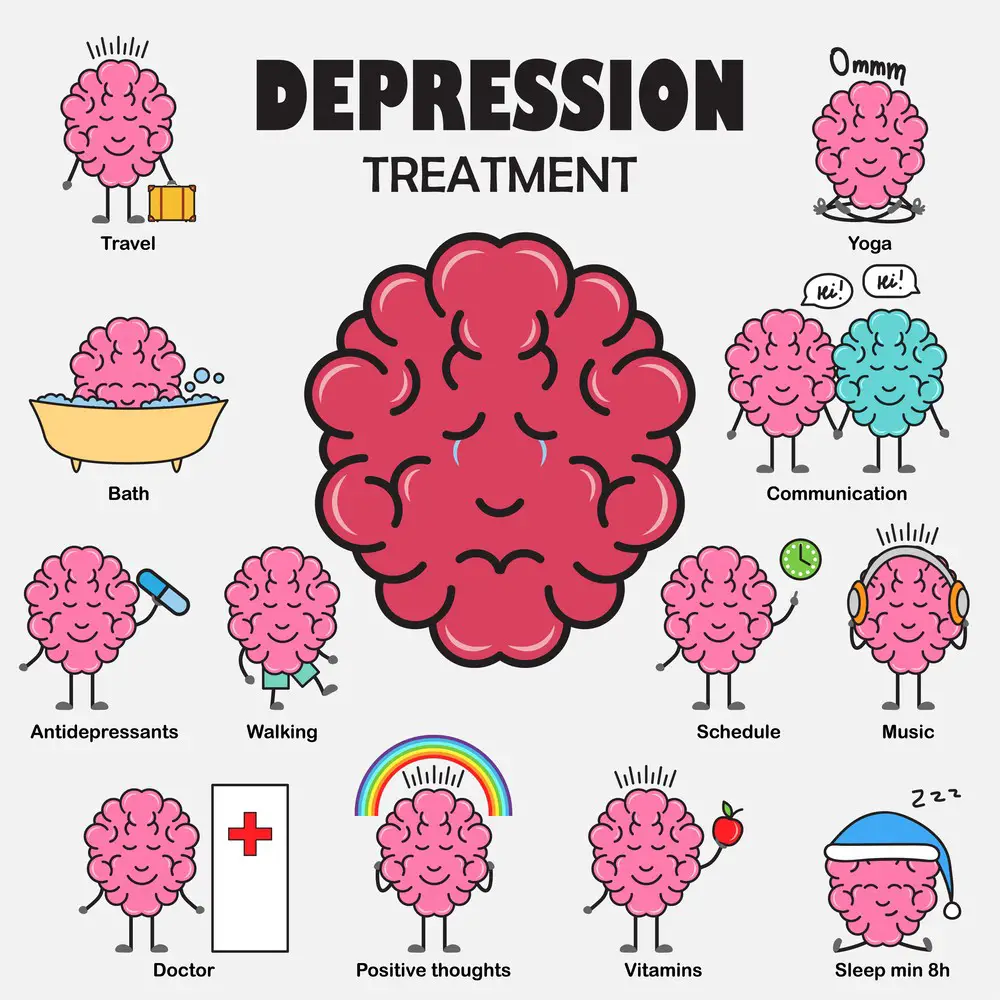
Depression Treatments
Therapy
One effective treatment for depression is therapy. You can benefit from several types of therapy, such as cognitive-behavioral therapy (CBT), interpersonal therapy, and psychodynamic therapy. These therapies help you identify and change negative thought patterns, improve communication skills, and understand the underlying issues contributing to your depression. It’s essential to find a therapist you feel comfortable with and establish a strong therapeutic relationship to maximize the benefits of therapy.
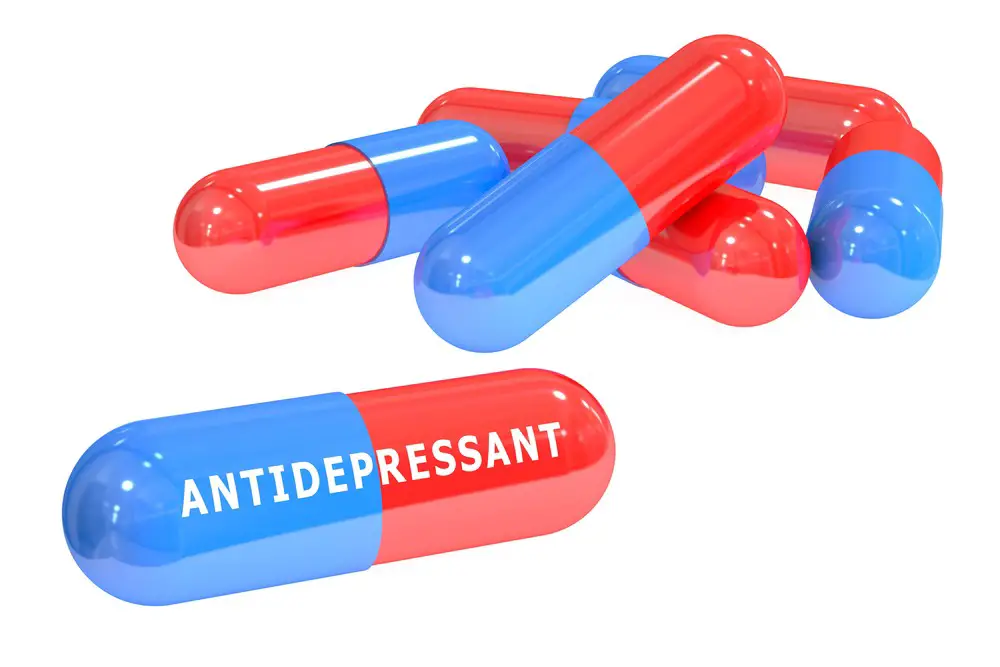
Medication
Another critical aspect of treating depression is medication. Antidepressants are commonly prescribed to help manage the symptoms of depression. Some examples of antidepressants include selective serotonin reuptake inhibitors (SSRIs), serotonin-norepinephrine reuptake inhibitors (SNRIs), and tricyclic antidepressants. Remember that it might take some time to find the right medication for your specific needs, and it’s crucial to follow your doctor’s recommendations for dosages and tapering off.
- SSRIs: Prozac, Zoloft, Lexapro
- SNRIs: Effexor, Cymbalta, Pristiq
- Tricyclic Antidepressants: Amitriptyline, Nortriptyline, Imipramine
Always consult your doctor before starting, changing, or stopping any medication.
Lifestyle Changes
Incorporating lifestyle changes can greatly enhance the effects of therapy and medication in treating depression. Here are some tips for making positive changes in your daily life:
- Exercise regularly: Aim for at least 30 minutes of aerobic exercise most days of the week, which can help increase endorphins and improve your mood.
- Eat a balanced diet: Focus on whole foods, such as fruits, vegetables, whole grains, and lean proteins, to provide your body with essential nutrients to support mental health.
- Prioritize sleep: Establish a regular sleep schedule and create a soothing bedtime routine to ensure you get enough rest each night.
- Avoid substance abuse: Avoid alcohol and recreational drugs, as they can worsen depression symptoms and make treatment less effective.
- Stay socially connected: Engage with friends, family, and support groups to reduce isolation and gain emotional support.
With a combination of therapy, medication, and lifestyle changes, you can manage and improve the symptoms of depression. Remember to be patient with yourself, as recovery is a gradual process, and always consult your healthcare provider for personalized guidance.
 Dealing with Depression
Dealing with Depression
Seeking Professional Help
When dealing with depression, seeking help from a mental health professional is crucial. They can diagnose your condition and recommend appropriate therapy, medication, or lifestyle changes. Don’t hesitate to reach out, as feeling hopeless or engaging in self-harm are serious concerns that need professional attention.
 Self-Help Tips
Self-Help Tips
There are several self-help strategies you can try to deal with depression:
- Stay active: Regular exercise can boost mood, reduce stress, and improve sleep.
- Connect with others: Strong relationships and support networks can be essential in overcoming depression.
- Challenge negative thoughts: Try to identify and replace pessimistic thoughts with more positive, rational ones.
- Eat well: A balanced diet can positively impact your mood and well-being.
- Get enough sleep: Aim for 7-8 hours per night to feel more rested and energized.
- Practice mindfulness: Techniques such as meditation, deep breathing, and yoga can help reduce stress and improve overall mental health.
Support System
Building a strong support system is crucial when dealing with depression. Here are some tips on creating a network:
- Reach out to friends and family: Share your feelings and tell them how they can help and support you.
- Join support groups: Connecting with others experiencing similar challenges can provide encouragement and understanding.
- Seek professional help: Therapists and counselors can be valuable to your support network, offering guidance and assistance in managing depression.
Remember, depression is a complex condition, and seeking help and support from various sources can significantly affect your recovery journey.
 Depression in Different Populations
Depression in Different Populations
Depression in Males
Depression in males is a significant concern, as they often experience it differently than females. Males might not show the classic signs of depression and might be less likely to seek help for it. They may express their emotions through irritability, aggression, or risky behavior. You need to recognize these signs, especially in children and teens, as it can affect their relationships and overall well-being. Some factors that might increase the risk of depression in males include:
- Family history of mental health issues
- Substance abuse
- Physical or emotional trauma
If you or someone you know shows signs of depression, encourage them to seek professional help and support them in their journey towards recovery.
Depression in Females
Depression is more common in females, who experience it differently than males. Girls, teens, and adult women might display various symptoms, such as mood swings, sadness, fatigue, and changes in appetite. Factors that can contribute to depression in females include:
- Hormonal changes during puberty, pregnancy, and menopause
- Increased stress levels from responsibilities and societal expectations
- Personal history of abuse or trauma
In children and adolescents, depression can deeply impact their academic performance and social lives. Provide a supportive environment, and be aware of any significant changes in behavior or mood. Encourage open conversations about mental health and seek professional help when needed.
By understanding how depression affects different populations, you can better support and empathize with those struggling with this challenging mental health condition. Always remember – the journey to recovery starts with compassion, understanding, and taking the first step towards help.
 Depression and Comorbid Conditions
Depression and Comorbid Conditions
Depression and Anxiety
It’s not uncommon for depression and anxiety to occur together. They often go hand-in-hand. Both conditions can make your life feel even more challenging, as they can exacerbate each other. However, understanding their connection can help you manage them better.
When you’re struggling with depression, it’s easy to become overwhelmed by anxious thoughts. This constant worry can contribute to feelings of hopelessness. On the other hand, anxiety can also trigger depressive episodes, making you feel powerless and alone.
To cope with these comorbid conditions, try the following:
- Practice mindfulness and relaxation techniques.
- Create a support network with friends and family.
- Speak with a mental health professional about therapy options.

Depression and Substance Use Disorder
Substance use disorders (SUD) are also commonly seen with depression. When you’re feeling down, it might seem like using substances is a quick fix to escape negative emotions. However, substance misuse can worsen your depression in the long run, creating a vicious cycle.
Some signs that your depression may be tied to substance use include:
- Relying on alcohol or drugs to cope with daily stressors.
- Using substances to numb emotional pain.
- Experiencing heightened anxiety or depression when not using substances.
If you suspect your substance use contributes to your depression, contact a professional for help. They can guide you on the right path to recovery, addressing your depression and SUD. Remember, seeking help is a sign of strength, not weakness.

Overcoming the Stigma of Depression
Don’t let the stigma of depression hold you back from seeking the help and support you need. It’s vital to understand that depression is a real, treatable illness – not a weakness or something to be ashamed of. Here are some steps you can take to overcome the stigma and embrace a healthier mindset:
- Educate yourself and others: Knowledge is power. Learn about depression, its causes, signs, and treatments. Share accurate information with friends, family, and colleagues to dispel misconceptions and foster understanding.
- Challenge stereotypes: When you hear someone commenting negatively about depression or using harmful language, gently correct them and provide accurate information. This can help break down the stigma surrounding the condition.
- Open up to trusted people: Share your experience with depression with people you trust, like close friends or family members. They can support you and help combat feelings of isolation.
- Find a supportive community: Connect with others with depression or mental health challenges. Support groups, online forums, and therapy groups can be invaluable in providing encouragement and understanding.
- Don’t label yourself by your condition: Remember that your depression does not define you. Your mental health is only one part of who you are, and you shouldn’t let it limit your identity or potential.
By following these steps, you are actively taking charge of your mental health and combating the effects of stigma. Embracing an open and accepting mindset can help you feel more connected, which is essential in overcoming isolation and finding the support you need to thrive.
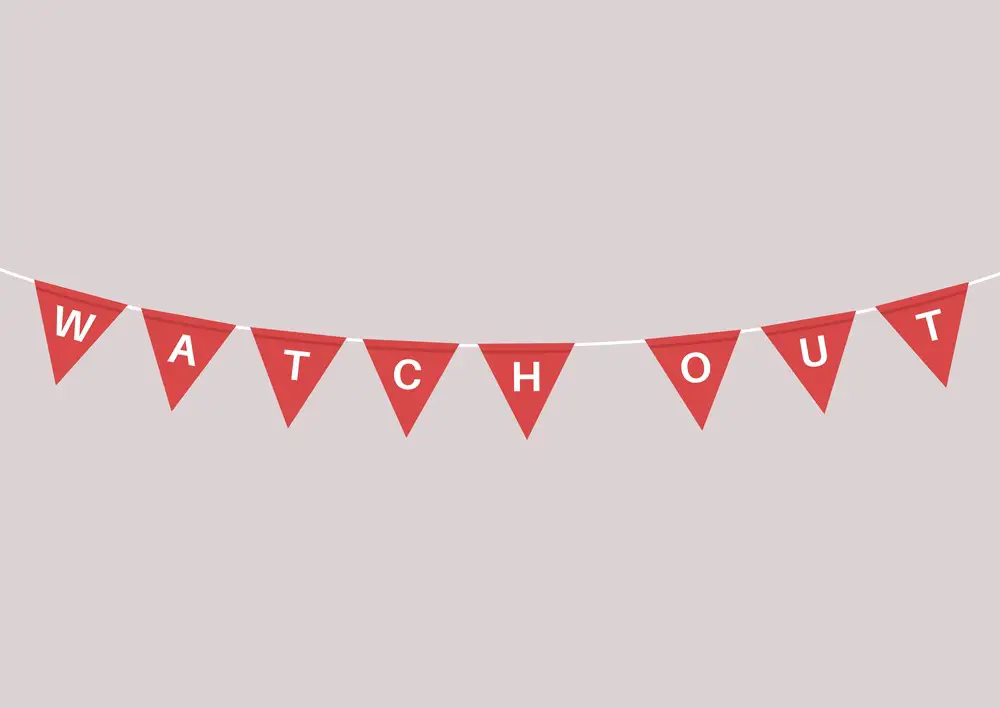
Wave the Red Flags: Signs Your Depression Is Serious
If you’re navigating through the maze that is depression, it’s crucial to be aware of signs that indicate your condition is severe and requires immediate attention. Don’t overlook these red flags:
- Pervasive Sadness: If your sadness feels overwhelming and affects every aspect of your life.
- Withdrawal: Isolating yourself and losing interest in activities you once enjoyed.
- Sleep Changes: Extreme insomnia or hypersomnia that’s disrupting your daily life.
- Erratic Behavior: Impulsive actions or thoughts that could put you or others at risk.
- Suicidal Thoughts: Thoughts of death or self-harm should never be ignored. Seek immediate help.
 The SOS Moment: When to Seek Professional Help
The SOS Moment: When to Seek Professional Help
Wondering when you should seek professional help is a common dilemma. But if you’re experiencing any of the following, it’s time to wave your SOS flag:
- Consistency: Your symptoms have persisted for more than two weeks.
- Severity: The intensity of your symptoms is escalating, making daily functioning difficult.
- Unmanageability: You cannot cope with your symptoms using your usual coping mechanisms.
- Impact on Relationships: Your symptoms are affecting your relationships and work.
 Therapy Goals: What to Aim for in Treatment
Therapy Goals: What to Aim for in Treatment
Once you’ve decided to seek professional help, you should have a roadmap for your journey to wellness. Your goals in therapy might include:
- Understanding the Root Cause: Unpacking the triggers and underlying issues.
- Developing Coping Strategies: Learning new ways to handle stress and emotional pain.
- Symptom Reduction: Working on reducing the frequency and severity of symptoms.
Milestones: How to Recognize Progress
Recognizing progress is key to staying motivated in your treatment journey. Here’s how to know you’re on the right track:
- Improved Mood: Feeling better, even gradually, is a good indicator.
- Increased Activity: Being able to participate in activities you previously avoided.
- Better Relationships: Noticing improvements in how you interact with loved ones.
By being aware of these signs and milestones, you’ll be better equipped to cope with depression, all while realizing that it’s perfectly okay to ask for help.
Conclusion
Finding hope is crucial when dealing with depression. Remember, you’re not alone in this battle. There are numerous support systems available to help you through these tough times. Taking advantage of therapy options and leaning on friends or support groups can be essential in overcoming depression.
When facing depression, therapy can be an invaluable tool. Whether cognitive-behavioral therapy (CBT), psychodynamic therapy, or any other approach, working with a qualified therapist can help you understand and work through your emotions. They can help you identify and change negative thought patterns, allowing you to develop healthy coping mechanisms.
In addition to therapy, social support is pivotal in overcoming depression. Reach out to friends, family, or colleagues you trust and share your experiences with them. Opening up and discussing your feelings will create a valuable support system to help you handle challenging situations.
Here are some other helpful tips:
- Participate in activities you enjoy and engage with positive people to boost your mood.
- Maintaining a regular sleep schedule, eating a healthy diet, and exercising regularly can improve your mental health.
- Consider joining a support group where you’ll find like-minded individuals who can offer advice, empathy, and understanding.
Remember, there’s no one-size-fits-all solution to coping with depression. What’s important is that you take the steps necessary to find hope, seek therapy, and develop a strong support network. This journey isn’t easy, but with determination and resilience, you can overcome depression and reclaim your life.
Frequently Asked Questions

What are common symptoms of depression?
Common symptoms of depression include persistent feelings of sadness, hopelessness, or emptiness; loss of interest in activities you used to enjoy; irritability; fatigue; trouble sleeping or sleeping too much; difficulty concentrating or making decisions; appetite changes; and in severe cases, thoughts of death or suicide. It’s important to note that each person’s experience with depression may vary.
How can I manage my depression?
There are several ways to manage your depression, including self-care, therapy, medication, and support from friends and family. Develop a routine incorporating healthy habits, such as regular exercise, a balanced diet, and enough sleep. Remember that it’s okay to ask for help and lean on others for needed support.
What treatments are available for depression?
Treatments for depression typically include a combination of therapy and medication. Cognitive-behavioral therapy (CBT) is a popular form of therapy that helps address negative thought patterns and develop coping skills. Antidepressant medications, such as selective serotonin reuptake inhibitors (SSRIs), can help regulate mood and alleviate symptoms. It’s important to work with a mental health professional to find the most appropriate treatment plan for you.
Where can I find support for my depression?
You can find support for depression through various resources, such as support groups, hotlines, and mental health professionals. Contact your friends and family to let them know what you’re going through and ask for their support. You might also consider joining a local or online support group to connect with others who understand your experience.
Are there lifestyle changes to help with depression?
Making lifestyle changes can help with managing depression. Some changes include:
- Prioritizing self-care
- Getting regular exercise
- Eating a balanced diet
- Establishing a consistent sleep schedule
- Reducing stress through relaxation techniques, such as meditation or deep breathing exercises
- Staying connected with supportive friends and family members
When should I seek professional help for depression?
If your depression symptoms are affecting your daily life, causing you significant distress, or persisting for an extended period, it’s important to seek professional help. Don’t hesitate to contact a mental health professional, such as a psychologist or psychiatrist, to discuss your situation and explore treatment options. Remember, seeking help is a sign of strength, not weakness.
My Lifeline in the Digital Age: How BetterHelp Became My Coping Mechanism
Living in a vacant three-bedroom apartment, only a short distance away from my children who I am currently estranged from, can be emotionally draining. However, I have found hope in an unexpected place – BetterHelp. This online platform offers more than just therapy; it’s a personalized, easily accessible, and deeply empathetic version of therapy 2.0.
As someone who has lived through the unfathomable horror of 9/11, losing more than a thousand colleagues and transitioning to a work-from-home life while juggling parental responsibilities, I’ve had my share of curveballs. BetterHelp gave me a forum to unload my emotional baggage safely and anonymously. The platform’s user-friendly interface and expert counselors have made navigating my complex emotional landscape easier, especially when dealing with my ex-spouse’s severe narcissism and non-cooperation.
One of the best parts? I don’t even need to step out of my home for it. As an affiliate, I can’t recommend BetterHelp enough for anyone with similar emotional challenges. It’s a lifeline that has helped me keep my sanity intact in a world that often feels devoid of reason.

A Ray of Light After Sunset: My Therapy Goals and Journey Ahead ?
Why I’m Seeking Therapy ?
It’s easy to keep busy when the sun is up; there’s work, errands, and the bustle of daily life ?. But when night falls ?, the silence is deafening. The empty rooms in my apartment feel even emptier, and the emotional toll of a long-standing custody battle and my ex-spouse’s smear campaigns weigh heavy on me. It’s not just a night or two of feeling down—it’s been an unbearable sadness that stretches over prolonged periods. I’ve been too sad for too long ?, and it’s time for a change.
Goals for Therapy ?
- Unpacking Emotional Baggage ?: Years of facing narcissistic behavior, smear campaigns, and complete alienation from my children have left me with many unresolved feelings. I want to understand these emotions better and find healthy ways to cope.
- Coping Strategies for Lonely Nights ?: Daytimes are manageable, but nights are a battle. I aim to develop strategies for those long, tough nights to replace dread with peace.
- Legal and Emotional Alignment ⚖️: I’m suing for the smear campaigns and the alienation, and I need to ensure my emotional health doesn’t compromise my legal standing.
- Long-term well-being ?: It’s not just about feeling okay; it’s about sustaining that feeling. I want to develop life skills that keep the emotional roller coasters at bay.
- Rekindling Relationships ?: I had a close relationship with my kids and want to work towards restoring that bond without the emotional volatility affecting them.
The Road Ahead ?️
There’s a lot to work on, but that’s what the therapy journey is all about ?. And it’s a journey I intend to make the most of. I’m not just looking to cope; I aim to thrive, turn these hardships into stepping stones ?, and rise stronger on the other side ?. In the meantime, you’ll find me walking by the beach ?️—my form of meditation—and connecting with BetterHelp professionals ?⚕️, who help make this bumpy ride more navigable.
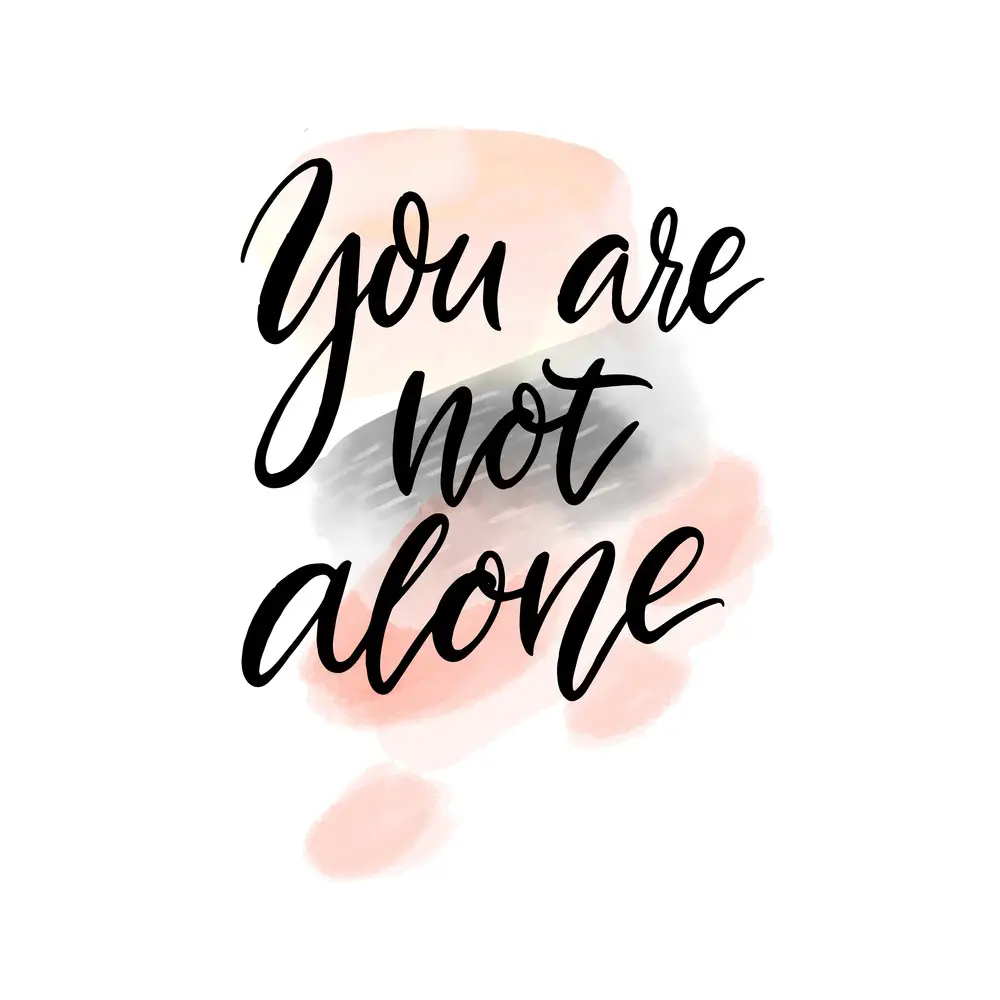
About Me: Jacob Maslow – The Unbreakable Advocate for Mental Wellness
From the smoky chaos of 9/11 to the lonely echo of empty rooms in my apartment, my journey has been an odyssey of highs and lows. But one thing has been constant—my commitment to understanding and advocating for mental health. A long-time therapy veteran, I recently found solace and valuable support through BetterHelp, which I highly recommend.
My professional life isn’t just about me; it’s about helping others navigate shared custody, mental health, and self-care. I write these articles as beacons for those lost in the dark corridors of narcissistic relationships and unresolved mental health issues. Life hasn’t been easy, especially with an ex whose severe narcissism has jeopardized our children’s emotional well-being. Yet, despite it all, I stand strong, fortified by my daily regimen of Lexapro and the therapeutic power of beach therapy.
I aim to empower everyone facing similar challenges. Through my legal site, I offer resources for those caught in the crossfire of obstinate spouses and legal complexities. I firmly believe that anyone can triumph over their mental health challenges; sometimes, we need a helping hand to guide us. So here I am, extending mine.
- Stress Management: What is the Relationship Between Stress and Addiction? - June 28, 2024
- Exploring Techniques to Maintain a Healthy Lifestyle without Drugs - May 28, 2024
- How Acupuncture Helps Treat Chronic Fatigue Syndrome - May 28, 2024
This site contains affiliate links to products. We will receive a commission for purchases made through these links.


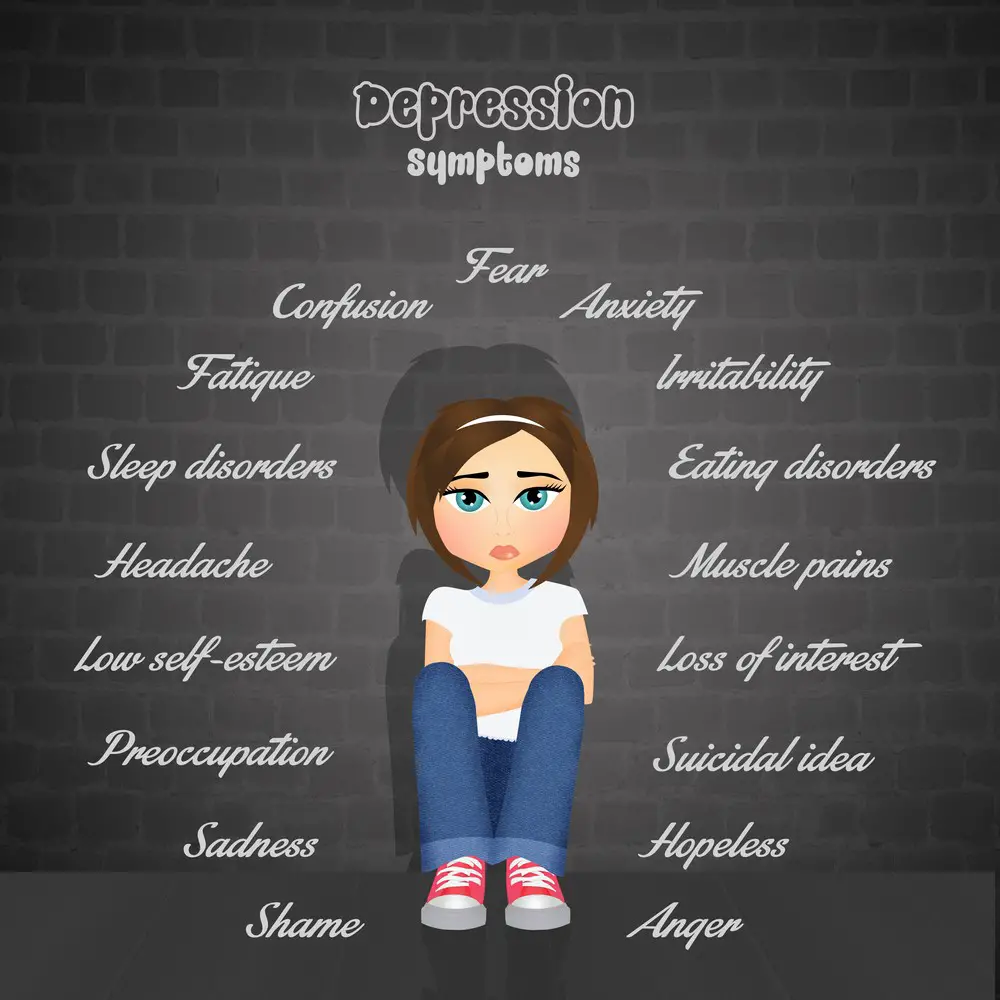 Understanding Depression
Understanding Depression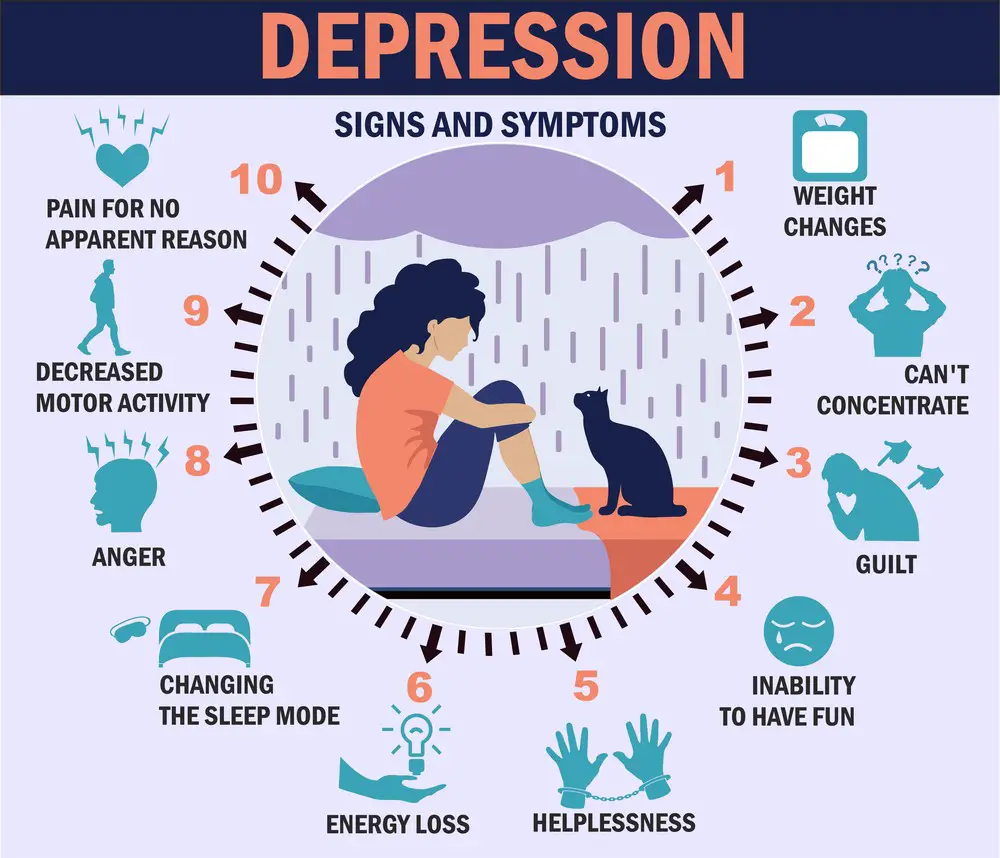 Causes of Depression
Causes of Depression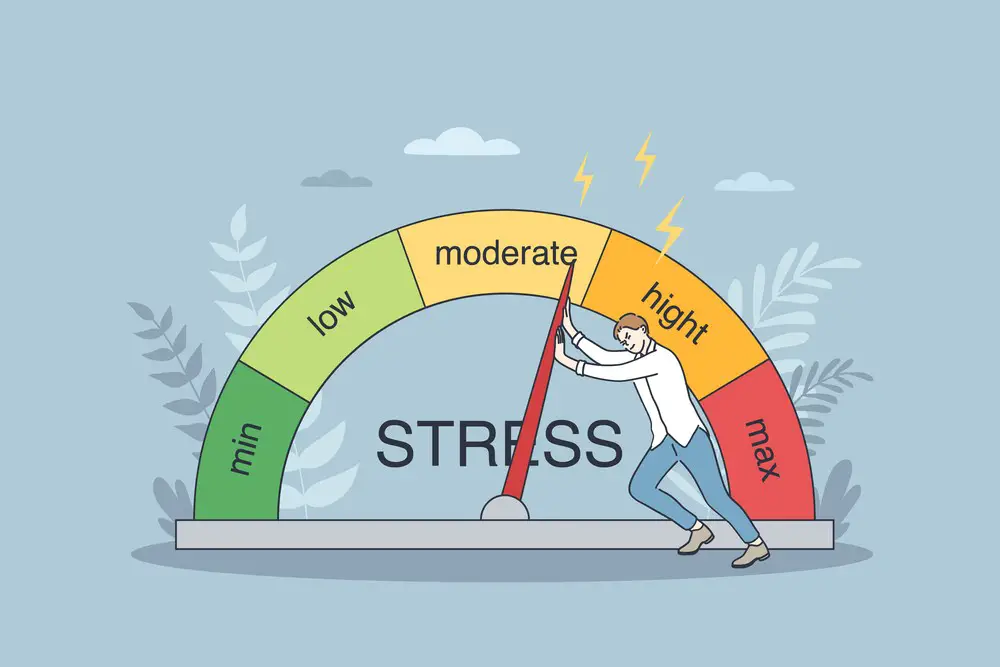 Medical Conditions
Medical Conditions Dealing with Depression
Dealing with Depression Self-Help Tips
Self-Help Tips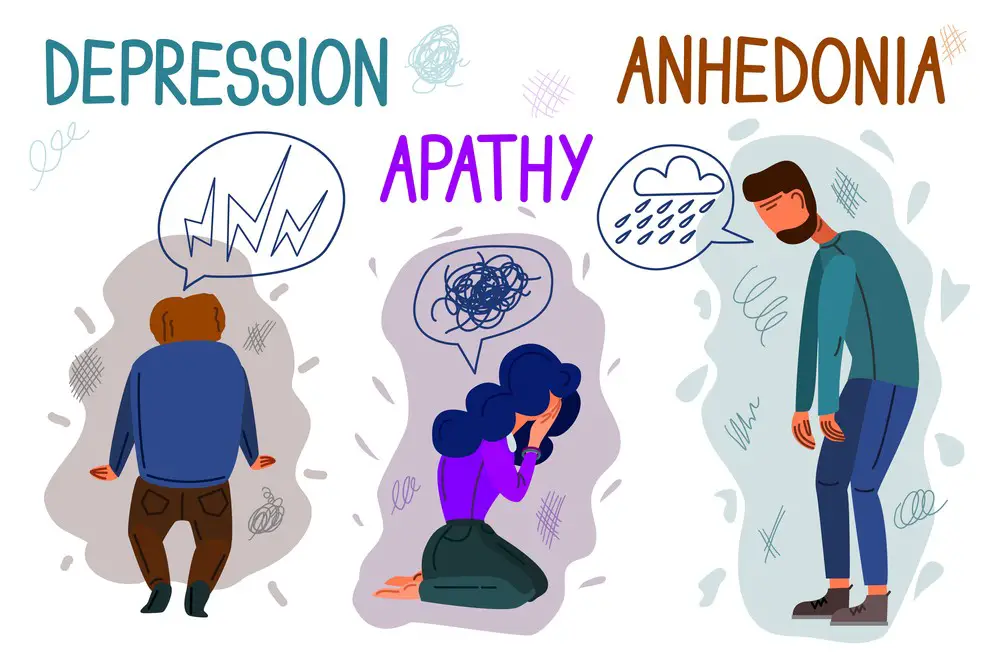 Depression in Different Populations
Depression in Different Populations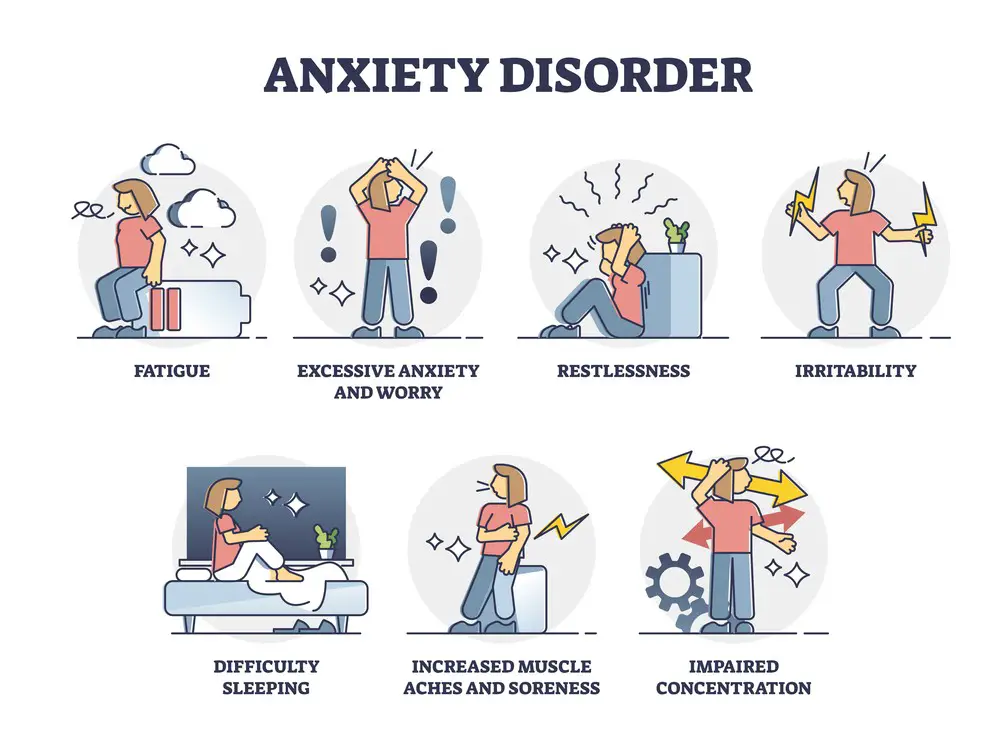 Depression and Comorbid Conditions
Depression and Comorbid Conditions The SOS Moment: When to Seek Professional Help
The SOS Moment: When to Seek Professional Help

